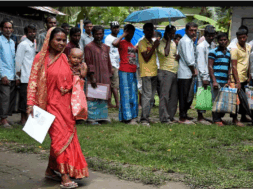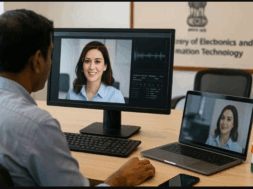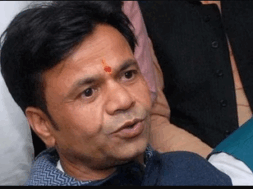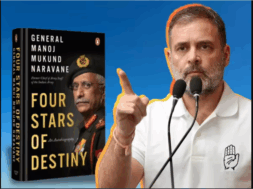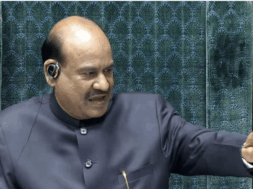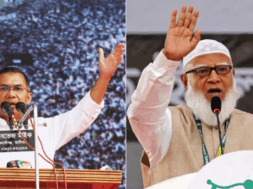
SC Cautions Judges against Making “Casual Observations” on Sensitive Issues in Open Courts
Manas Dasgupta
NEW DELHI, Sept 25: The Supreme Court on Wednesday closed proceedings against the Karnataka High Court Judge Justice Vedavyasachar Srishananda following his public apology but only after warning all the judges against making “casual observations” revealing communal bias or misogynistic opinion during judicial proceedings live-streamed across the country.
A five-judge Special Bench headed by the Chief Justice of India D.Y. Chandrachud was hearing a suo motu case on video clips featuring Justice V. Srishananda’s ‘Pakistan’ remark, and sexist banter addressed to a woman lawyer during two separate judicial proceedings on June 6 and August 28, respectively.
The Court said the Justice Srishananda’s reference to a Muslim-dominated part of Bengaluru as ‘Pakistan’ was “fundamentally wrong under the Constitution.” “You cannot call any part of the territory of India ‘Pakistan’… This is fundamentally wrong under the Constitution,” Chief Justice Chandrachud said orally.
Justice Srishananda during court hearings on a landlord-tenant dispute, referred to a Muslim-majority area in Bengaluru as “Pakistan” and made a misogynistic comment involving a woman lawyer. His comments, which went viral on social media, prompted the Supreme Court to seek a report from the Karnataka High Court, which was submitted shortly after the incident. Chief Justice leading a five-judge bench, stated that the decision was made in the interest of justice and the dignity of the judiciary.
The apex court emphasised that judges must strictly adhere to the values of the Constitution rather than make misogynistic or prejudicial comments unrelated to the case in hand. The Bench preferred to pass its judicial order in open court despite advice from Attorney General R. Venkataramani and Solicitor General Tushar Mehta to opt for an in-house procedure. Both law officers were apprehensive that the observations made in the Supreme Court hearing during the suo motu proceedings would be later misrepresented on social media.
“The answer to sunlight is more sunlight. The answer is not to close our doors and shut out everything,” Chief Justice Chandrachud responded. The Bench, in its order, said casual, off-the-cuff remarks by judges would not only show them in a negative light but impact the entire judicial institution adversely. “Casual observations may reflect individual bias, particularly if they are directed at a particular community or gender,” the Bench underscored.
Chief Justice Chandrachud said the judiciary, lawyers and litigants, especially those who appear in court as petitioners-in-person, need to exercise restraint in their language and conduct. They have to realise that it was not just the people physically present in the courtroom who were watching them. The demands of the electronic age required them to practice modulation during court proceedings accessible to the outer world through videoconferencing and live-streaming, the CJI said.
“Bearing in mind the contrite apology tendered by the judge in open court proceedings, we consider it in the interest of justice and keeping in mind the dignity of the institution to not pursue this matter further,” the Supreme Court ordered on Justice Srishananda.
A day after the apex court took suo motu cognisance of his remarks in the court, Justice Srishananda on September 21 had made a statement in open court that his words were taken out of context and he had not intended to hurt anyone. He had tendered an apology “if any section of the society or if any individuals were indirectly or directly hurt.”
The five-judge bench headed by CJI Chandrachud had on September 20 suo motu took cognisance of two video clips that went viral on social media about ‘controversial’ observations made by Justice Srishananda. The first video clip showed Justice Srishanada stating ‘go to Mysuru Road flyover, every autorickshaw has got 10 people.. It [law] is not applicable because Mysuru Road flyover till up to up market from Gouripalya is in Pakistan not in India. This is the reality… Even if a strict police officer posted there would not catch [violators those carrying more than 10 people in an autorickshaw]…’
These observations were made during the hearing of a case involving motor vehicle laws. In the second video clip, Justice Srishananda is seen stating: “…you know everything about him. Tomorrow morning you tell which colour undergarment he wears…” This remark was made before a woman lawyer during the hearing of a cheque dishonour case between two litigants, who were close friends.
These two video clippings, extracted from High Court’s live-streamed court proceedings on its official YouTube channel, had gone viral on social media with varying comments and interpretations by various individuals. Senior Advocate Indira Jaising, on her ‘X’ handle, had tagged one of these clippings with the comment. “We call upon the CJI to take suo motu action against this judge and send him for gender sensitisation training.”
Justice Srishananda expressed his “sincere regrets if his observations had hurt any individual and any section or community of the society.” He read out a statement in this regard in the open court in the afternoon on September 21 in the presence of some of the office bearers of the Advocates’ Association, Bengaluru (AAB), several lawyers, and others present in the court hall, before commencement of regular judicial proceedings.
Referring to his remark, made while addressing a woman advocate which had gone viral on social media, Justice Srishananda said the remark was not intended to her [woman advocate] but it was to her client. Stating that he would have clarified this point to the woman advocate if she was present in the court, he requested the office-bearers of the AAB to convey his message to her as she was not present in the court hall.
The maiden hearing on the issue on September 20 saw the five-judge Bench of the CJI and four senior most judges of the apex court seek a report on the video clips of Justice Srishananda circulating on social media. The report said the videos were part of the recordings of the Karnataka High Court. The High Court’s live streaming platform has a subscriber base of 1.38 lakh. The Registrar General of the High Court had furnished the Supreme Court with a transcript of what had happened during the June 6 and August 28 proceedings.
This was the second instance the five-judge Bench had assembled to caution a High Court judge to stay in line and refrain from making derogatory remarks during live-streamed court proceedings. On August 7, the bench had similarly suo motu taken up proceedings against the Punjab and Haryana High Court judge Rajbir Sehrawat over observations made in court.
In its judicial order, the Bench had similarly cautioned judges against making “random, gratuitous and unwarranted remarks” in the course of hearings and to be mindful that proceedings were live-streamed. The apex court had warned judges that such comments, which proliferated on video, tended to cause “incalculable harm to the sanctity of the judicial process.”
“In an age where there is widespread reporting of every proceeding which takes place in the court, particularly in the context of live-streaming which is intended to provide access to justice to citizens, it is all the more necessary that judges exercise due restraint and responsibility in observations made in the course of proceedings… We hope and trust that circumspection shall be exercised in the future,” the Bench, also comprising Justices Sanjiv Khanna, B.R. Gavai, Surya Kant, and Hrishiskesh Roy, had observed.
In fact, the 16th tenet of the ‘Restatement of the Values of Judicial Life,’ a code of judicial ethics adopted by the Supreme Court in 1997, required “every judge at all times to be conscious that he is under the public gaze and there should be no act or omission by him which is unbecoming of the high office he occupies and the public esteem in which the office is held.”
So far, Chief Justice Chandrachud has refused to gag reportage or social media posts sourced from live-streamed court proceedings. Live-streaming was described as the true realisation of the open court system in the apex court’s Swapnil Tripathi judgment of 2018.
On Wednesday, Chief Justice Chandrachud said videoconferencing and live-streaming began during the pandemic years to counter the threat of stasis in judicial proceedings. “What began as a necessity, videoconferencing and live-streaming emerged as an outreach facility of the courts,” the Chief Justice observed.

